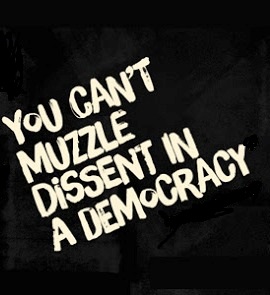

By Sunil Garodia
First publised on 2021-01-25 07:45:28
Politicians do not learn from mistakes - not their own nor of others of their ilk. Close on the heels of the huge controversy created by the amendments to the Kerala Police Act (which were later withdrawn after protests by civil rights activists and others), the Bihar government has issued a circular that replicates the provisions of the Kerala attempt in the state. It seems dissent has become an ugly word for all politicians and they try to crush it by whatever means that come to their mind.
The Bihar circular is issued by the economic offences wing of the Bihar police. It is the nodal agency for action against cyber-crime. It asks principal secretaries and secretaries of various departments to inform the police wing about such "objectionable" posts so that action can be taken under provisions of the IT Act and the Indian Penal Code. The circular seeks to punish "objectionable and indecent" comments made online against the state government or its ministers, MLAs, MPs and officials as cyber-crime.
While no new draconian law is being enacted or such amendments are not being made to existing laws, the circular itself is draconian as it does not clearly define what would be considered "objectionable and indecent" and more importantly, who will decide what is "objectionable and indecent". Hence, once again, like the Kerala attempt to muzzle criticism, this attempt too gives the police the power to be judge and jury. It is like an umbrella order to punish people for posting anything that might be considered objectionable and indecent by the principal secretaries and secretaries of government department and the police. Moreover, since it is an administrative order, it is likely to be used arbitrarily.
Why do politicians not understand that dissent and a million alternate views are the very basis of democracy? To understand this, they have to first understand that democracy does not mean winner takes all as even if the winner is voted to power with 98 percent of the popular votes, there will still be 2 percent of the population that will not agree with it. In India, no winner gets more than 55 percent votes (and at an average gets about 40 percent votes but rules due to the first-past-the-post system) so at any time there would be 45 percent (or 60 percent) of the population that would not agree with it and will seek avenues to express their dissent. To this will be added people who voted for it but still do not agree with some of its policies.
To muzzle this huge body of dissenters is a direct assault on right to freedom of speech and expression as guaranteed by the constitution. These repeated attempts by those in power to muzzle dissent (the Centre even uses the draconian sedition laws against high profile dissenters when they choose to protest against its policies and tries to equate criticism of the government or the ruling party as criticism of the nation by terming it anti-national) must be stopped. The best way to do it is to clearly define what constitutes "objectionable, indecent or unwarranted" criticism and what are the ways in which such well-defined criticism could cause "enmity between communities" or "enmity with a foreign country" or cause a "law and order" problem. Once these are clearly defined, it must be clearly stated who is empowered to decide whether a particular post or statement falls under such criticism to initiate action against the "offender". The action must follow due process and there should not be arrests without warrants or other undue harassment. There must always be an inquiry and the person charged must be allowed to explain his position. The Supreme Court must examine these definitions and the procedure for constitutional validity. Until then, these unholy attempts to crush dissent must be avoided, both by the Centre and by individual states.











